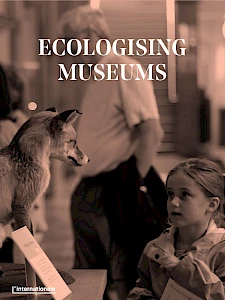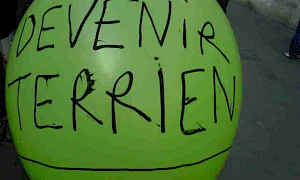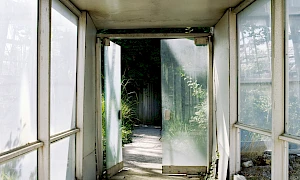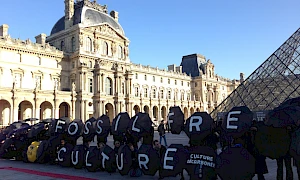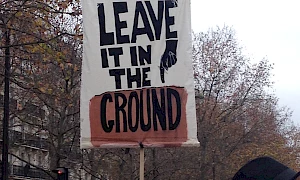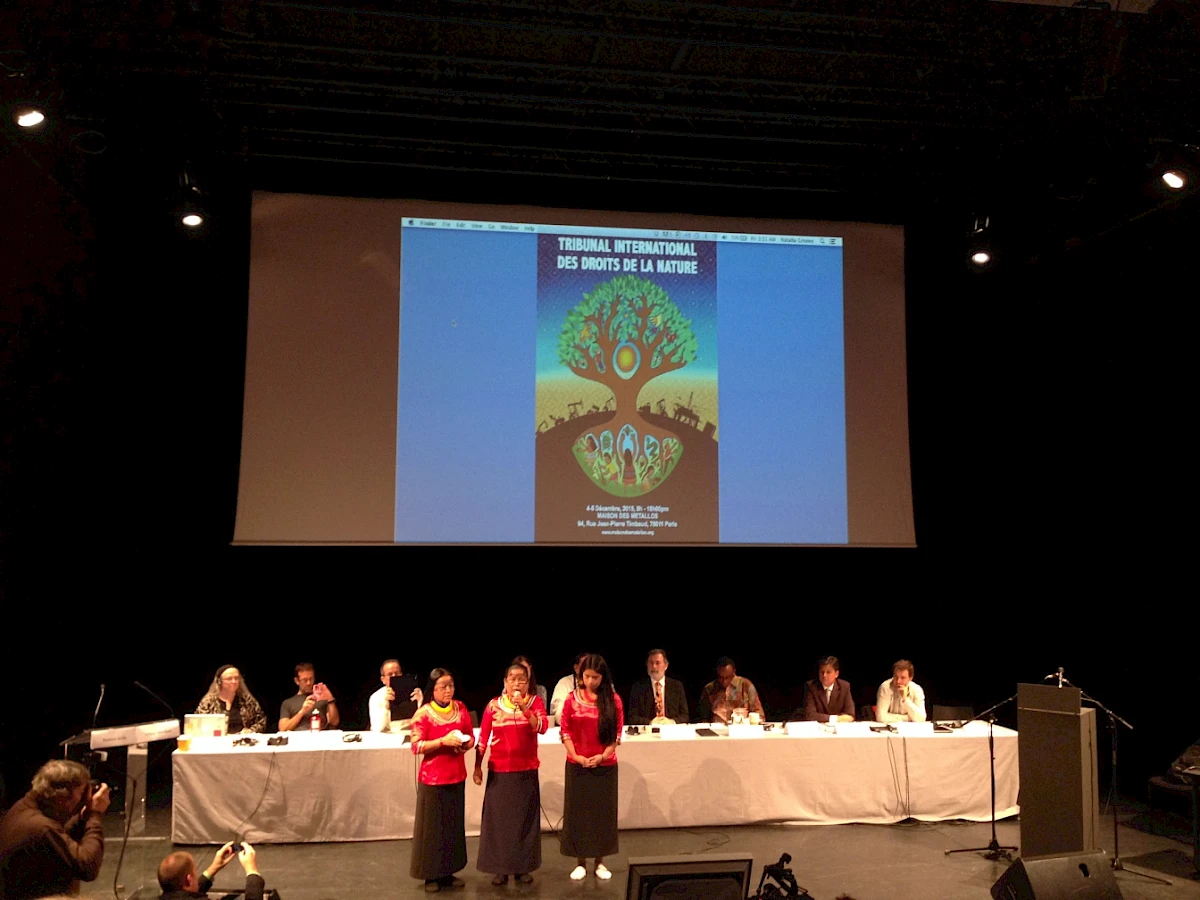
Opening ceremony led by the Tla'Amin Nation at 'the International Rights of Nature Tribunal', Maison des Métallos, Paris, 2015. Photo by Clémence Seurat.
On the eve of the cancelled Global March for the Climate, about twenty people gathered on the banks of the Canal de l'Ourcq in Paris at the initiative of Toxic Tour 93, to honour our dead. A mournful reading drew apt parallels between the past, present and future deaths from attacks and those due to climate. This moment for thought and reflection was a call for us to write our own history, to continue to work tirelessly to honour the victims of policies that do not represent us.
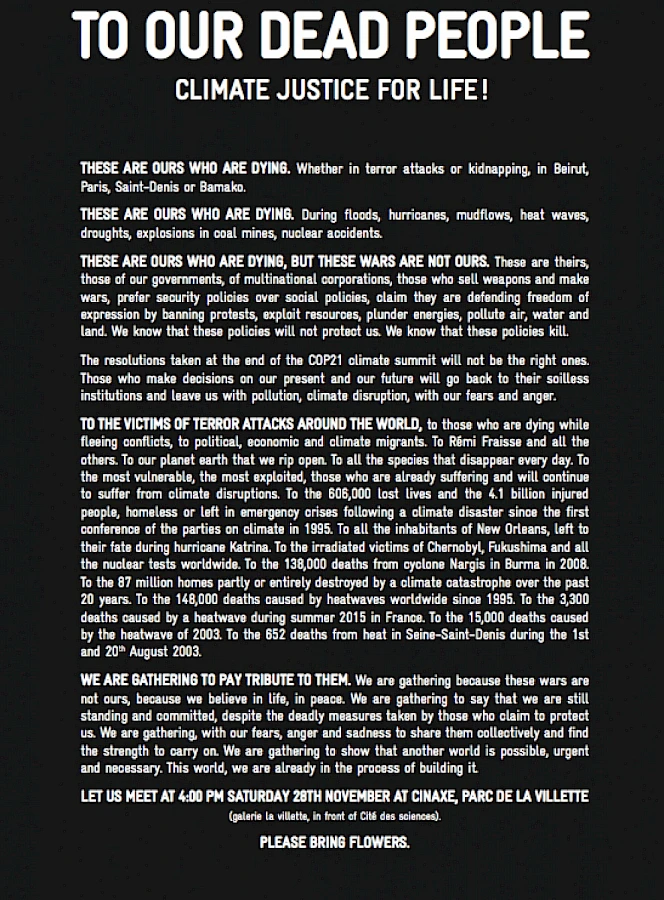
Toxic Tour, Paris, November 2015. Courtesy Toxic Tours Detox 93.
Security measures have even resulted in a clampdown on peaceful gatherings such as the human chain and the rally at Place de la République planned for last Sunday. Public spaces have been cordonned off and we are left on the outside. Activists are working to develop ingenious strategies to bypass the state of emergency and make their voices heard in ways that the official negotiations cannot drown out. Meanwhile, the capital's cultural institutions and arts venues are playing host to initiatives on the sidelines of COP21 and providing a forum for discussion. These establishments have correctly gauged the conceptual and cultural shift required, address the politically charged issues of ecology and climate change, and foster the development of alternative ideas.
The International Rights of Nature Tribunal held its opening session on Friday, 4 December at Maison des Métallos. This project was established by the Global Alliance for the Rights of Nature (GARN) and Ecocide on Earth (EEE) to experiment with new tools and legal concepts aimed at securing the inclusion of the Rights of Nature in public law and the recognition of ecocide as a crime in international criminal law. Perhaps more relevant to this blog is the proposal for the Rights of Earthlings, which would encompass both humans and non-humans without distinction, in order to avoid problems stemming from the unifying and segregating concept of nature. Mother Earth, or Pachamama, is the central focus here, but it would be useful to develop other narratives for peoples that do not share this culture.
A model of governance has effectively been taking shape since the first tribunal, held in conjunction with COP20 in Lima. Seven cases are heard during the two-day event, in order to prove that the Earth is victim to a number of crimes that call for reparations. While crime is present in every case, humans are responsible to varying degrees – 10% of the world population generates half of global CO2 emissions. The idea is to hold the culprits accountable, namely the governments and multinationals that forestall any challenge to the dominant development model, as set forth in Article 3.51 of the United Nations Framework Convention on Climate Change (UNFCCC).
The proceedings opened with a ceremony led by the Tla'Amin Nation to "shorten the distance between the head and the heart" (which can be the longest distance, especially in the matters at hand). The tribunal then took aim at the key issues absent from the discussions in Le Bourget: deforestation, water, fossil fuels, nuclear energy, and more. We learned, for example, that the COP21 Secretariat handed out an important document to all the negotiators concerning carbon capture and storage (CCS), one of the solutions promoted by advocates of geoengineering, Earthmasters who seek to play God with the climate2 and deepen our "addiction" to dangerous technologies with irreversible consequences.
As has been stated in recent works,3 the legal system still appears to be the most vital tool for protecting people and fighting global warming effectively – but it must not be the only one and the battle must extend outside the realm of law, because those accountable for these crises are formidable legal tacticians. Artist and researcher Nabil Ahmed, who is in Paris for the ArtCOP21 professional workshop, develops legal and political responses to ecological conflicts. His Earth Sensing Association project is building a body of evidence based on 'leads' he investigates and articulates in aesthetic language, using a curatorial approach. Ahmed is establishing a true from of forensic ecology, a proof-making inspired by architecture, a political act that involves translation between disciplines and creates forums in which these pieces of evidence are assembled to become permissible in a court of law.
Translated from French by Ethan Footlik
